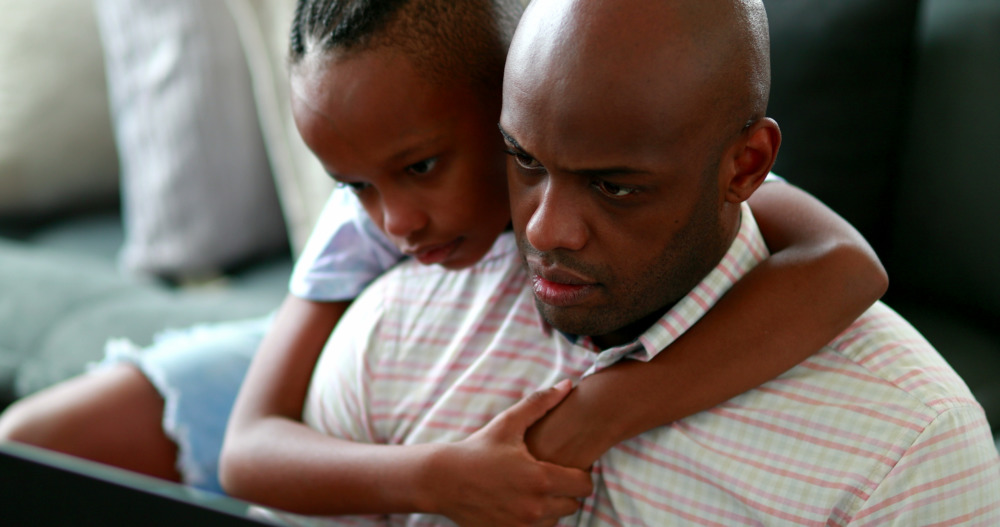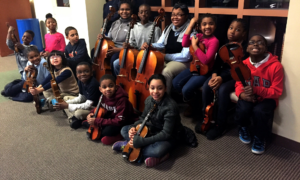Tasha Alston, the University of Pittsburgh at Bradford’s inaugural chief diversity and inclusion officer, says her first book urges the broad public to rethink how schools partner with parents, especially outside the classroom and especially regarding Black dads.
Her tome, “African American Fathers’ Involvement in Their Children’s Education,” explores that topic in light of figurative and literal challenges faced by Black boys and men, and of stereotypes that wrongly paint Black fathers as disproportionately absentee. The opposite is true, according to several prior studies. The federal Centers for Disease Control and Prevention and Pew Research Center, among others, have concluded that Black fathers – whether or not they lived full-time with their children – were more involved than fathers of other races in regularly bathing, diapering, dressing, feeding, eating with, playing with and otherwise being active in their children’s lives.
What follows is an abridged version of Youth Today’s recent conversation with researcher, educational psychologist and social worker Alston.
The Conversation
How important is parental involvement in a child’s education? What does that involvement yield?
When parents are involved in their children’s education, the benefits include more time on school tasks, improved behavior, increased social skills, increased self-efficacy and increased achievement motivation. Parents use their influence to support their children in education and with academic achievement.
Also, parents benefit by being involved in their children’s education. As they are involved, they increase their self-efficacy, their own ability to achieve a task or a goal.
What, in your estimation, is the biggest roadblock for creating partnerships with African American fathers?
There is a false narrative that persists throughout American society, portraying African American fathers as absent, peripheral and missing in the lives of their children and families. What is true is that the United States of America has a history of slavery that continues to affect African Americans.
Lack of paid time off for fathers can be a barrier to involvement in their children’s education. Oftentimes, educators don’t invite fathers for events taking place at school, or updates on what’s happening with their child, which becomes another barrier. And for those fathers not living under the same roof as their children, the mother herself can be a barrier to involvement because she is the gatekeeper.
What are some examples of partnerships that are working? Where are they? What’s the empirical and/or anecdotal evidence that they are working?
My research for this book purposely gave voice to African American fathers who can tell their own stories and counter-stories. It is an example of a partnership that worked.
This research also unapologetically placed race in the forefront. That helps us better understand how race operates in the lives of African American fathers and … work towards social justice for the betterment of society as a whole.
Other examples are when African American fathers reach out to their social networks to provide support and resources. If a child needs support with statistics, and a father has a good friend or family member who happens to be a professor of statistics, paying that individual to tutor the child becomes a valuable tool.
Fathers can also tap their human capital to aid in their childrens’ education. If, for example, a father knows an individual at a university that his child decides, at an early age, to attend, the father may begin to facilitate that relationship.
All of these are forms of involvement that happen outside of the school environment.
In education, but perhaps also in other spheres, what barriers do African American fathers face regarding involvement with their children?
In addition to systemic barriers that are not father-friendly or father-inclusive, there are preconceived biases held by individuals, educators, administrators, practitioners and policymakers.
There is also a lack of equity and resources. In other words, fathers often are not given the same exact resources that mothers may have. [Social service agencies] are less likely to provide fathers with resources related to housing or shelter, employment training and other economic resources he needs to support his family. Furthermore, there are policies in place that penalize fathers instead of supporting them. For example, if a father is unemployed and can’t pay child support, he can face jail time.
What can classroom teachers, school administrators and other educators do to:
1) narrow achievement gaps between Black students and other students and
2) ensure that more Black fathers are, if you will, at the table, in the schools?
Invite African American fathers to be engaged [and] involved. Value the voice of African American fathers and value the experiential knowledge that African American fathers have. Acknowledge the contributions that African American fathers make in their children’s education, and in the lives of their children and families.
White middle-class forms of involvement include volunteering in the classroom, teaching in the classroom and being active with school associations and committees. If an individual has to work, he cannot be present in the school environment [during the school day]. But he can sit down with his children at home, walk them through their homework and make sure they understand their assignments.
If a child is having difficulty reading, a parent can read with his child at home. If a child is having behavior problems at school, the parent can work at home to address the behavior problems and ensure those problems are remedied before the child gets back to the school environment.
These are all diverse forms of involvement that must be valued and validated.
































